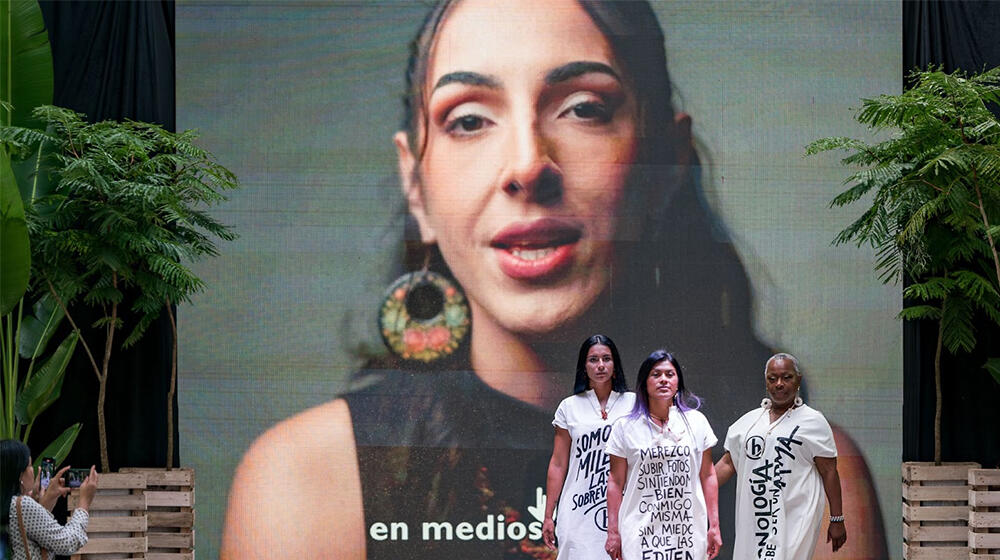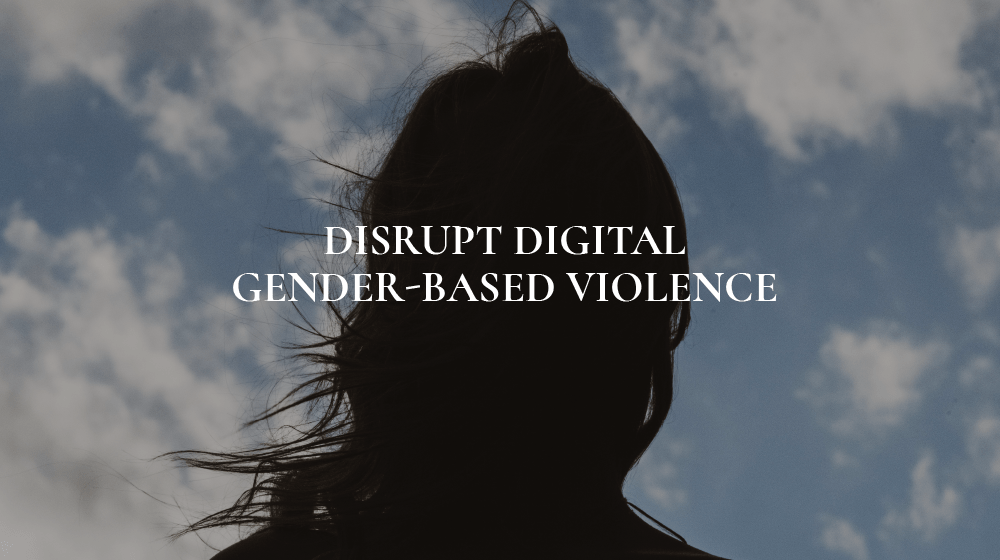
Three women making the world safer for women
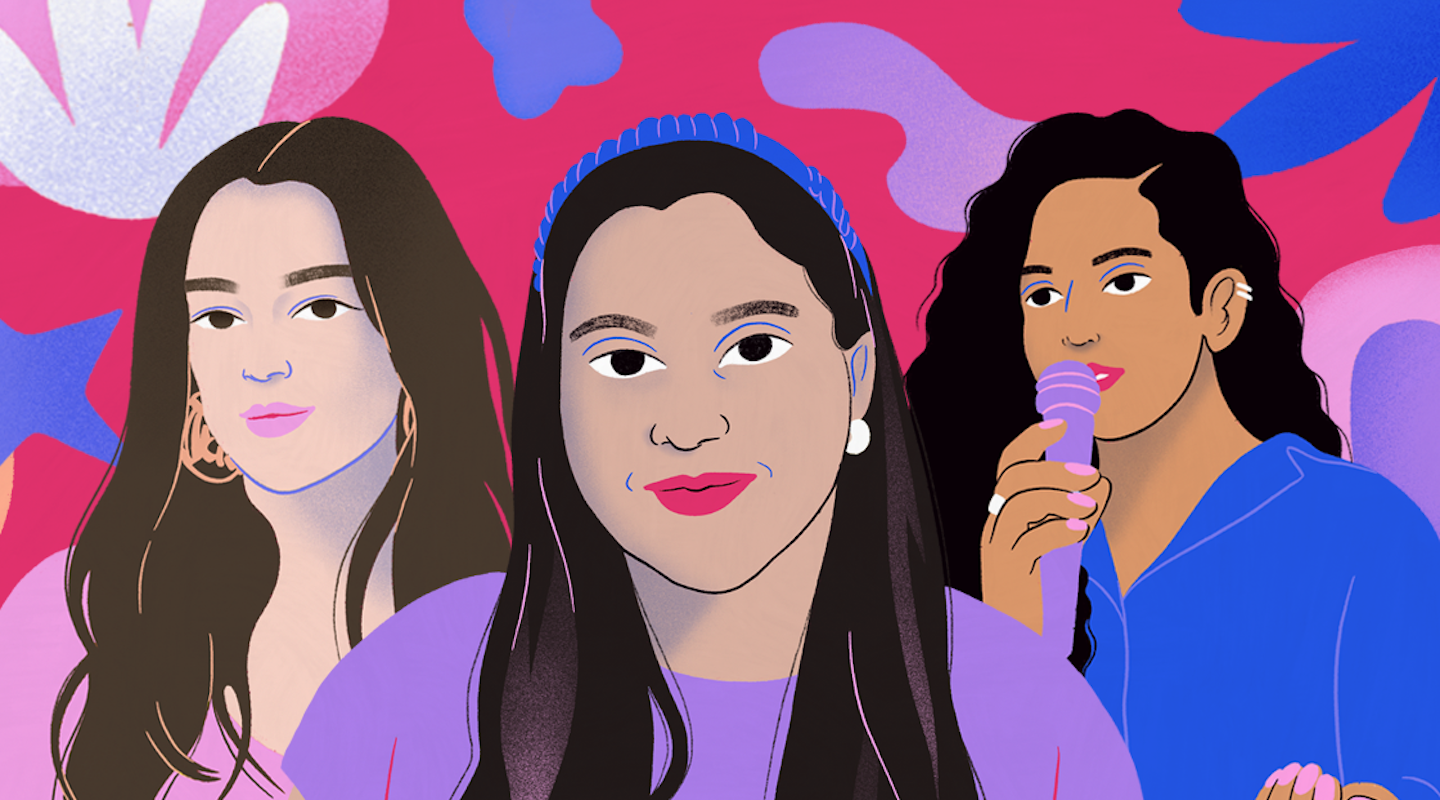
The world is more connected than ever, thanks to our always-evolving technology. But with such advancements come opportunities for harm, with predators finding new ways to perpetuate gender-based violence, using technology for harassment, cyberstalking, doxxing, sextortion.
In honour of World Population Day, meet a trio of world-changing women who are working to combat digital violence – creating new laws, technologies and support systems – and to end gender inequality, which creates an imbalance of power and a vulnerability to violence, both in the real and virtual worlds.
The Fighter: Olimpia Coral Melo Cruz
When she was a young adult growing up in the Mexican city of Puebla, Olimpia Coral Melo Cruz recorded a sexual video with her boyfriend at his request, thinking it would stop him from being unfaithful. “I felt it would help us so that he might not seek other women,” she told UNFPA in the multimedia feature The Virtual Is Real. “I did not understand many things about romantic love that I understand now.” Her boyfriend betrayed her, posting the private video on social media. Soon it spread to dozens of pornography sites.
“I received as many as 40 friendship requests daily, mainly from men asking for sex in exchange for deleting the video. One said if I had sex with a dog, he would delete the video,” she said. “I searched the Internet for what was going on and read it was called ‘revenge porn.’ I felt more guilty because if it is ‘porn,’ I provoked it, and if it is ‘revenge,’ I did something to deserve it.”
Her life spiraled into darkness. “I stopped going to school, avoiding many things because I was very embarrassed. Your naked body became public without your permission, but people blame you because you let yourself be recorded. In such a macho country, you are evil, a whore, a provocateur, and you come to believe them. I was disgusted by my own face and my body, not just because of the video but because of the teasing and commodification — whether you are fat, whether you have stretch marks or cellulite, what your hair looks like — all because you are a woman.” She tried to commit suicide three times.
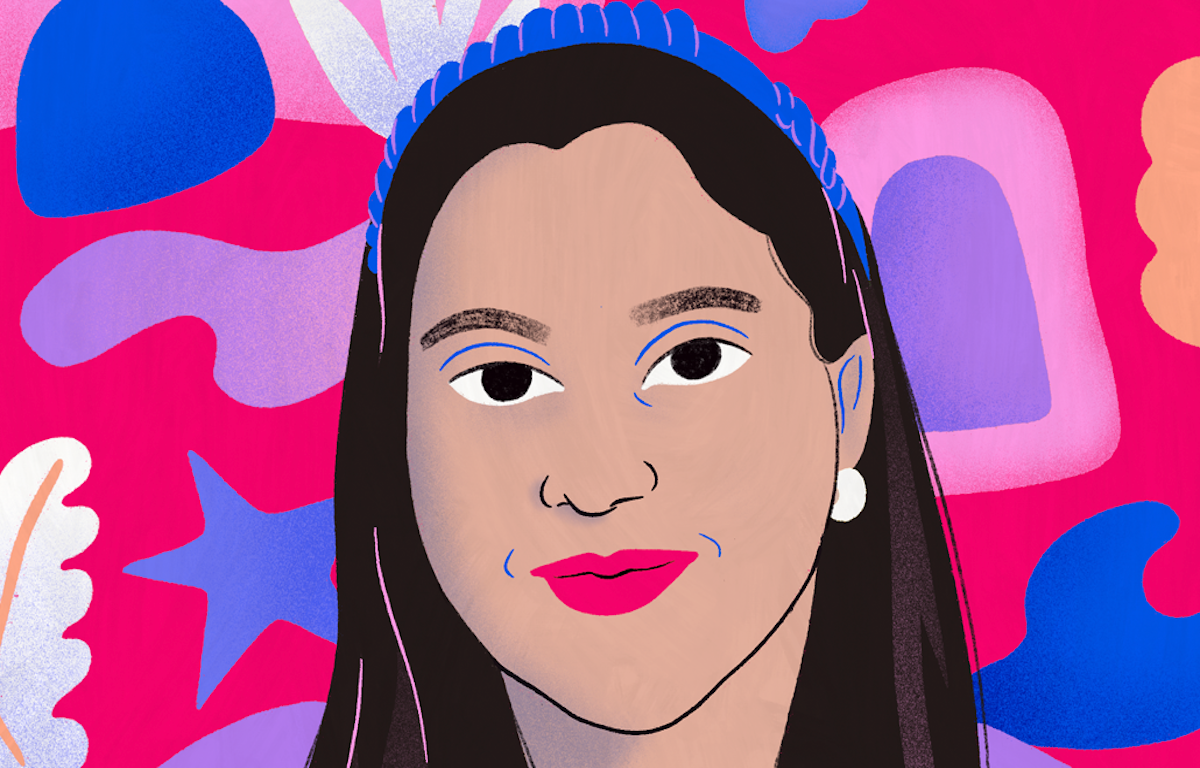
When someone sent her family the video, she begged her mother not to watch. “For my family not to see it was my only hope to not feel like the living dead,” she said. But her mother wanted to see what was causing her daughter so much distress. “My mum took the phone and cried while watching the video. I was very afraid. My body was burning. You feel guilty that you are harming your family.”
The video made her mother mad — not at her daughter, but at the perpetrator who had betrayed her child’s trust. Her mother said: “Fight, daughter, because you are not at fault.” It was the first time Ms. Melo Cruz had been told that she was not to blame.
Bolstered by her mother’s encouragement, Ms. Melo Cruz found a support group and realized that many women had experienced similar kinds of online abuse. “I decided to do something about it by fighting for reform, for digital violence to be recognized and punished,” she said. “The first challenge was the re-victimization. Legislators, societies and people in general did not understand that the victims are not the culprits. The second challenge was the sexual taboo that gives it greater stigma. The third obstacle is that people thought there was no crime because it was virtual. When you say, ‘I suffered digital violence,’ people laugh at you. Commenters even made memes of us saying: ‘Are you going to place me in a virtual jail?’”
The lack of awareness made her all the more determined to fight for change, and she became a powerful advocate for legislation to combat digital violence. In April 2021, her efforts paid off: Mexico passed Olimpia’s Law, which federally prohibits the sharing of sexual content without the subject’s permission, punishable by up to six years in prison.
“We have the right to be safe in digital spaces,” she said. “We have to build an Internet that above all protects our security and respects our human rights. Even if you can’t see or touch it, the virtual realm is real.”
The Advocate: Norma Buster
When Norma Buster broke up with her boyfriend of two years, he did not take it well. First he tried to gain her sympathy by lying that his family members were sick or dying. Then he threatened to commit suicide. When she tried to cut off communications, he said he would share her naked photos with the world online.
Ms. Buster, a recent graduate of college in New York at the time, had sent him photos throughout the relationship: “They were meant to be private,” she told UNFPA. “After we broke up, I had asked him to delete them in front of me, but they were backed up on his computer.”
Ms. Buster and her parents went to the police and got a temporary restraining order. “Two months after the breakup, I went to family court to make it permanent, with printouts of his threatening messages. He showed up with a lawyer, who started asking questions that made me look like I was actually the obsessive one,” she said. “I was very rattled, and the judge denied a final restraining order, which was devastating.”
Two months later, she was horrified to see her naked photos appear on Pornhub, along with her full name, phone number and home address, as well as notes soliciting people for oral sex. She went back to the police, and they helped her get the photos removed from the site. But the judge once again denied a restraining order: “She said that we didn’t know that my ex posted the images, and that when you send photos to one person, it’s like asking for it to be put on a billboard,” Ms. Buster said. “That was the first instance of victim-blaming that I experienced.”

Desperate for help, her mother found a lawyer in New York, Carrie Goldberg, who was one of the few people talking about this kind of online violence back in 2015. Ms. Goldberg connected Ms. Buster with a prosecutor who had experience with domestic violence and Internet crimes. He got an investigation rolling, and Norma got a permanent restraining order.
Two years after the breakup, her ex-boyfriend was sentenced in court to five years’ probation, having pled guilty to invasion of privacy. “There were times I wished he had to spend time in prison, like I was in mental prison for months. I have post-traumatic stress disorder, I know my triggers – my phone is always on silent because I can't stand the vibration of the phone after getting message after message from him. But the way my story ended – I’m safe, my photos didn’t go viral, he paid some consequences and this is on his record – I’m thankful for,” she said.
“I remember saying then that I didn’t think I’d ever send pictures like that again. That’s not how I feel at all today. Carrie was the first person who ever told me, ‘This isn’t your fault.’ I’ve done a lot of therapy and writing and self-reflection. When I tell people my story, they’re either supportive or they’re supportive but also like, ‘I bet you learned your lesson.’ I’m not ashamed. I don’t regret sending the pictures to him. The shame is not mine to carry. He violated the trust. He weaponized my sexuality against me.”
Ms. Buster now works as a client relations manager at Ms. Goldberg’s law firm, where she helps survivors of sexual, domestic and tech-facilitated abuse seek justice. She shares her story to empower other survivors. “For victims of these crimes, the offender is usually trying to shame them into silence,” she said. “Sharing my story under my full name shows the world that I have nothing to be ashamed of, and I will not be silenced.”
The Visionary: Mariam Torosyan
When Mariam Torosyan was pregnant with her daughter in her native Armenia, an elderly woman approached her at a family gathering and said not to worry, the second child would be a boy. “In a patriarchal society like mine, girls are undervalued, even before their birth,” she has said. “That’s why I decided to focus my efforts on enhancing the status and role of girls and women in my society.”
To that end, Ms. Torosyan, a social entrepreneur with a background in law who had worked for years with survivors of violence, turned to technology – using its power as a force for good.
She launched the Impact Innovations Institute to develop an app to combat gender-based violence, enlisting a group of information-technology professionals and gender-based violence experts. A key goal for the technology was to enable users to seek urgent assistance in emergency situations. With that in mind, the developers created a “help” button that would allow users to send free messages with geolocation details to personal contacts, nonprofit organizations or the police – and would automatically enable audio recording, which is crucial for victims who are alone with the perpetrator.
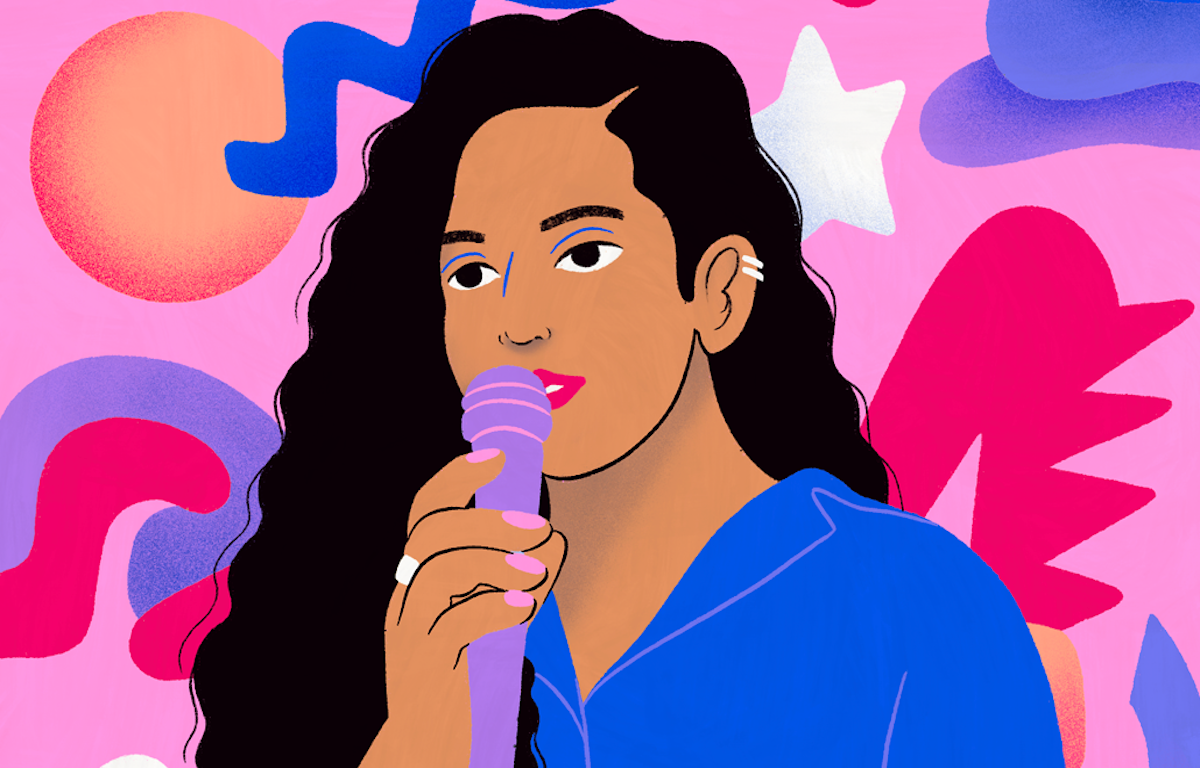
Another important goal for the app was to help women connect and share advice for protecting themselves from gender-based violence, both online and off. And so, the developers created forums for anonymous discussions within the community and with professionals such as doctors, lawyers and psychologists.
In May 2020, the app was launched in Armenia. In June of that year, it was launched in Georgia, and in December 2021, in Northern Iraq, in partnership with UNFPA.
At a presentation in Yerevan, Armenia, in November 2021, Ms. Torosyan said the culture of community makes the app special. “We should never underestimate the capacity for self-care and self-help from communities. One resource that is not used enough is the community action and community support that peer-to-peer enables,” she said. “We are in the right place at the right time. We have a solution to the problem of violence that is increasing. We need to move quickly to make sure that it is available in as many countries as possible.”
Noting that it’s a key time to be working in the movement for gender justice, she said, “We are living in a world where we are empowered by technology. It is the first time in human history that we have so many resources that we can use.”
